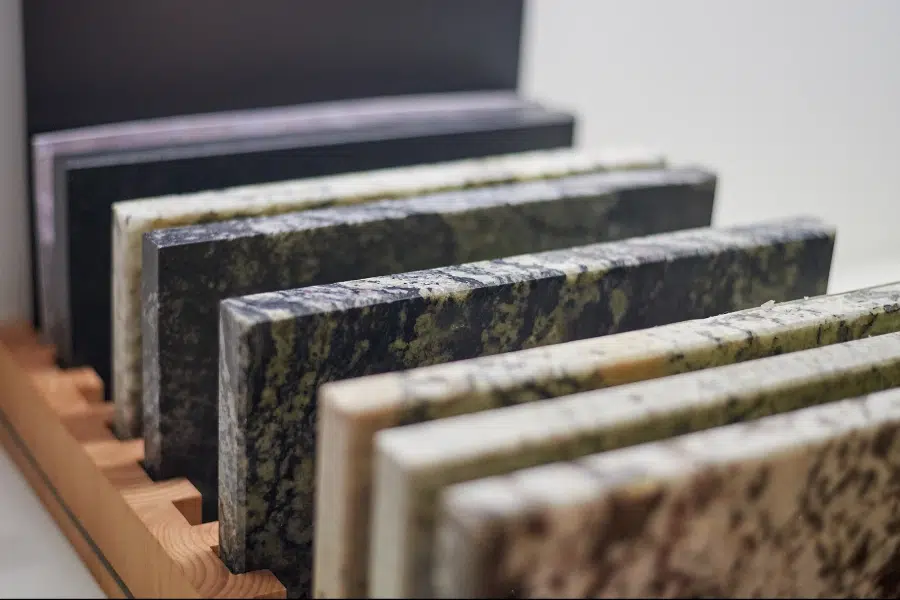How To Care For Your Natural Stone Floor: Dos And Don’ts
Natural stone floors are timeless and add sophistication and character to any room. Whether it’s Marble, Granite, Limestone, or Travertine flooring, the beauty of genuine stone is unmatched. However, these elegant floors require proper maintenance. In this article, we will explore the different types of natural stone flooring, provide dos and don’ts for caring for them, and share professional tips to keep them in pristine condition.
Types of Natural Stone Floors: Understanding Your Flooring
To effectively maintain your natural stone floors, it is crucial to identify the specific type of stone you have. Each stone possesses unique characteristics and requires specific care.
- Marble Flooring: A timeless and elegant choice, marble is easy to maintain. However, it is susceptible to scratches and stains, requiring careful cleaning to preserve its pristine surface.
- Granite Flooring: Known for its durability, granite is ideal for high-traffic areas. Resistant to scratches and stains, it is commonly used in kitchens and hallways.
- Limestone Flooring: With its rustic and organic appearance, limestone adds a natural charm to any space. Although not as hard as granite, it demands diligent attention to prevent staining and chipping.
- Travertine Flooring: Featuring an earthy aesthetic, travertine is a popular option. Due to its porous nature and sensitivity to acids, special precautions must be taken during cleaning.
By accurately identifying the type of natural stone slab or flooring you possess, you can provide the proper care needed to maintain its longevity and preserve its inherent beauty.

Find the Perfect Stone for
Your Project
Dos: Best Practices for Cleaning and Maintaining Your Stone Floor
To properly care for your natural stone floor, it’s crucial to not only consider what you do but also how you do it. Here’s a comprehensive guide to the best practices:
- Use cleaning products specifically designed for natural stone to prevent scratching. Acidic or abrasive cleaners can easily damage the delicate surface of stone floors.
- Regularly clean your stone floor to prevent dust and grime from causing harm. Simply sweeping or vacuuming on a consistent basis and wiping with a damp cloth will help maintain cleanliness.
- Since most natural stones are porous and can absorb liquids, it’s essential to seal them. By applying a high-quality sealer, you enhance their stain resistance and simplify maintenance.
- Act quickly in the event of a spill on your stone floor. Blot the spill with a soft towel to prevent the stain from penetrating the stone and causing permanent damage.
Don’ts: Common Mistakes to Avoid
To maintain the beauty and integrity of your natural stone flooring, it’s important to know what to do and what not to do. Here are some common mistakes to avoid:
- Marble and limestone may be etched by using acidic cleaners such as lemon, vinegar, or bleach. Always clean natural stone using products that are pH-neutral and made for that purpose.
- Don’t Ignore Accidents: Some spills, like wine or juice, may leave persistent stains if not cleaned up immediately. Take immediate action to erase them.
- Scrubbing with abrasive pads or brushes might damage the stone’s finish, so avoid using them. When mopping, always use soft towels.
- Sealing is an important step that should not be skipped since it protects your stone from stains and wear. Sealing the stone on a regular basis can help keep it looking good and lasting longer.
- Avoid soaking the floor; doing so increases the risk of water soaking into the stone and damaging it. A wet mop or towel should be used at all times.
By avoiding these common mistakes, you can preserve the natural beauty and integrity of your Marble Flooring, Granite Flooring, Limestone Flooring, and Travertine Flooring.
4 Tips for Maintaining Your Natural Stone Floors Beautifully
- Know Your Stone: Determine the correct cleaning materials and techniques based on the type of stone you have.
- Regular Maintenance is Key: Keep your floors looking great for years by regularly cleaning and sealing them. Don’t underestimate the importance of ongoing maintenance alongside occasional deep cleanings.
- Call in the Experts: When in doubt, it’s wise to consult with professional cleaning or restoration services. They have the expertise to handle any uncertainties.
- Educate Yourself: Stay informed about cutting-edge remedies and how to use them. Knowledge is a powerful tool when it comes to caring for your flooring.
Conclusion
Natural stone floors may make a statement in terms of style and are more than just a surface. From the luxury of Marble Flooring to the rustic charm of Travertine Flooring, each stone has its own history. Respect for the natural beauty they represent and the ambiance they provide to any space is shown by keeping these floors in good condition. Your expertise, regular care, and avoiding common mistakes will all contribute to the attractiveness of your natural stone flooring. If you adhere to these recommendations, your flooring will remain a magnificent tribute to your house.
Frequently Asked Questions (FAQs)
How do you maintain natural stone floors?
Regular sweeping or vacuuming to remove dust and filth, the use of pH-neutral cleansers made especially for natural stone, and sealing the stone to avoid stains are all necessary maintenance procedures for natural stone floors. The flooring will remain in good condition with regular maintenance and the avoidance of acidic or abrasive materials.
What should you not use on natural stone?
You shouldn’t clean natural stone with abrasive materials like rough pads or brushes, acidic cleaners like lemon or vinegar, or specialist cleaning products made for other types of stone. The stone’s surface may become discolored or etched if it is harmed in this manner.
How do you keep natural stone shiny?
You should frequently clean natural stone with the proper cleansers and polish it with a soft cloth to maintain its finest appearance. Sealing the stone may help keep it looking clean in addition to protecting it from stains and scratches. To restore something to its original brilliance, a professional polishing job can be necessary.
What is good to clean natural stone?
Use only natural stone-specific neutral pH cleaners to prevent harming the stone’s polish. Despite the fragility of stone, these cleaners are safe for it and will help maintain its natural appearance. Never use anything acidic or abrasive; only use the goods the manufacturer recommends for the best results.
Natural Stone Slab Supplier
Avant Stone brings together 20 years of stone industry experience to provide you with a range of globally sourced stone slabs including Marble slabs, Granite slabs and Quartzite Slabs.
We aim provide you quality service and distinctive stone products for your home or your commercial space. Avant Stone is the premier Stone Supplier of Granite, Quartzite and Marble slabs in Sydney.
Our showroom is located centrally in Greenacre, a mere 20 minutes from Sydney & Parramatta CBD.
Give us a call: 0298170037
Email us at: info@avantstone.com.au



